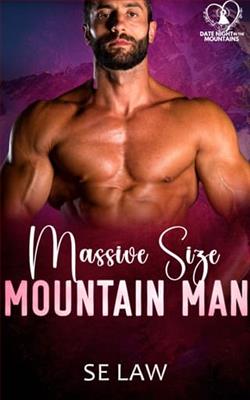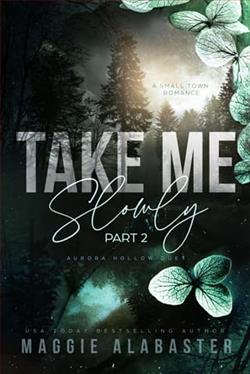Page 45 of Hometown Heart
"Can't? Or won't?" He leaned closer.
"What if it's too much? And what if he—" I gestured vaguely toward the back of the room where Jack sat.
"That's exactly why you need to recite. He'll hear your heart."
The high school student finished to enthusiastic applause. Rory squeezed my shoulder once, then returned to the microphone.
"We have time for just one more reader tonight." He paused. "This is a very special reading because someone who usually stays safely behind the counter has finally agreed to share his words with us. Please welcome Silas Brewster."
The room shifted its collective attention toward me. I gripped the edge of the counter so hard my knuckles blanched white.
Ziggy appeared at my side, somehow extracting me from my fortress without a word. His hand remained steady on my shoulder as he guided me forward.
"Breathe. It's only words."
We both knew that wasn't entirely true. Words were rarely ever only words.
As I approached the microphone, Jack straightened in his chair, eyes locked on mine.
His voice, low and steady, rode above that of others: "Go on, Si."
He did it.
The familiarity of the nickname and the gentle tone wrapped around me like a warm hug. I stepped forward, unfolding the paper.
The microphone loomed before me. My fingers trembled slightly as I pressed the creases flat. Unlike Ziggy, I hadn't memorized my words. It was too risky to think I might forget vital words.
I cleared my throat once and then twice. The familiar faces of my neighbors blurred into one, except for Jack. He remained in sharp focus, standing apart from the others.
"This is, um—" My voice caught. I started again. "I don't usually do this."
A few encouraging murmurs rippled through the crowd. Dottie Perkins nodded vigorously.
I took a deep breath and began:
The harbormaster knows the tides by heart,
maps them in his sleep, predicts the pull
with weathered fingers and salt-worncharts.
He never questions the moon's hunger,
its relentless claiming of the shore.
The words flowed easier once I'd begun. I found a rhythm somewhere inside the lines. My poem didn't have the drama and fire of Ziggy's, but I liked the quiet intensity. It was a confessional by someone who had spent too many years watching instead of living.
I've studied safer waters, learned to navigate
the shallows where nothing much is risked.
I've memorized the contours of ordinary days,the precise temperature of perfect extraction,
the exact moment milk transforms to silk.
I couldn't look up. If I saw understanding in Jack's expression, I didn't think I'd be able to continue.
But lately, the tide charts fail me.















